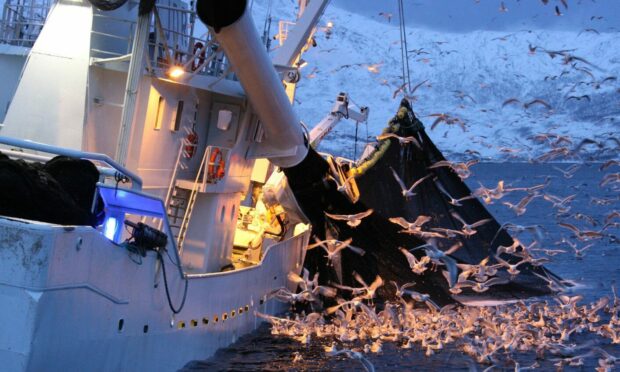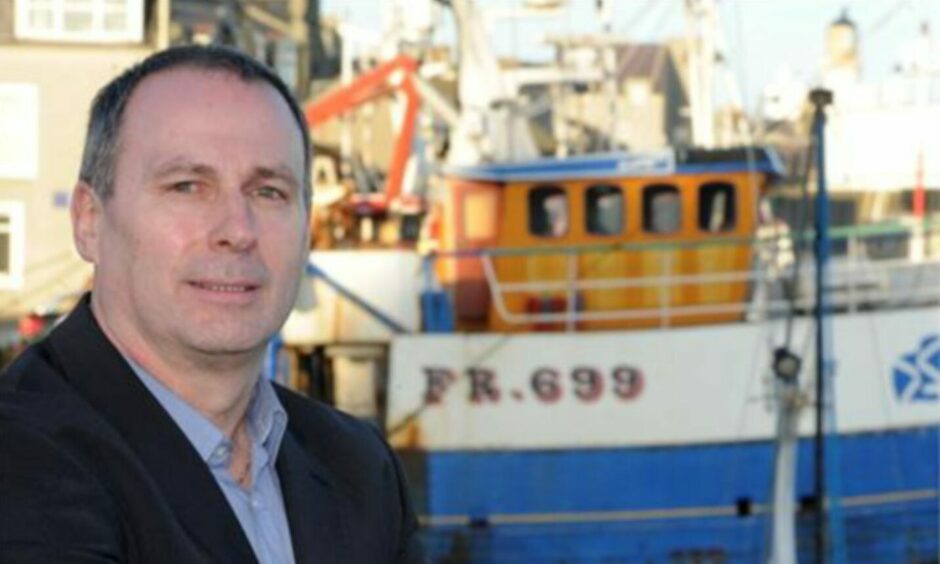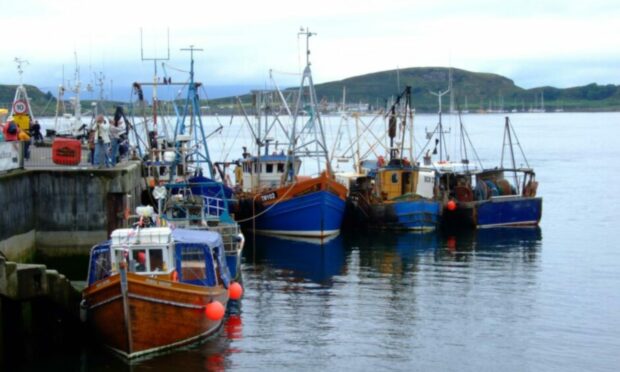A north-east fishing boss currently in Indonesia in a “desperate” search to find workers for Scottish boats has hit out at the UK Government for tightening visa rules.
Almost a fifth of fishermen working in Scotland come from outside the European Economic Area (EEA), and up until today many did so by getting a transit visa.
Transit visas allowed these fishermen to travel to Scotland to board a vessel that will go on to fish in international waters.
However, new rules came into force at midnight banning anyone on a transit visa from carrying out work on fishing boats, and requiring them to get a skilled workers visa instead.
The sector says this will make it difficult to hire foreign fishermen as this type of visa requires a higher level of English language skills which many do not have.
However, a spokeswoman for the Home Office said having fishermen with better English will help protect “potentially vulnerable workers from exploitation”.
Mike Park, from the Scottish White Fish Producers’ Association in Fraserburgh, worries the rule change will lead to small family-owned businesses closing down.
He spoke to the Press and Journal from Indonesia where he says he is “desperately scouring” around to hire workers with the required English skills to come over and work on Scottish boats.
New visa regulations
As of midnight the UK Government has banned those with transit visas from all forms of activity, both onshore and in UK territorial waters.
Previously Scottish vessels could use transit visas to hire crew from outside the EEA as long as they were working “wholly or mainly” outside of UK territory, which is defined as more than 12 nautical miles from the shore.
But now they will need a skilled workers visa to do this.
‘The industry faces a crisis’
For the past few months the industry has been urging the UK Government to remove the English language requirement from the skilled workers visa for fisherman.
Mr Park, speaking from Indonesia, said: “We have asked for a dispensation from the new regulations because it is going to cause harm to the industry.
“But in the 11th hour the Home Office has rejected this and now the industry faces a crisis.”
He said this will be a particular problem for fishermen on the west coast and the Western Isles.
Mr Park added it will be “very, very difficult” to find enough fishermen who meet the requirements for a skilled workers visa to meet demand.
He estimates for around every 350 foreign seamen on Scottish boats, only around six will have the required English language certificate for this visa.
Mr Park said: “We are desperately scouring around trying to hire fishermen, but this is going to affect family owned businesses.
“And if the boats cannot supply producers on the Western Isles, factories will face so much pressure that in the medium to long term they will have to shut down as well.”
‘Essential’ changes are made, says Gougeon
Scottish ministers have also been urging the UK Government to rethink the proposals.
The Scottish Government opposes the use of transit visas for fishermen as it does not meet the needs of the industry and does not give workers enough protection, but say changes need to be made to the skilled workers visa.
Scottish Rural Affairs Secretary Mairi Gougeon said: “Despite use raising our concerns previously, the UK Government has once again ignored our requests for workable changes to the skilled worker visa provision.
“These recent changes impose further cost barriers on an industry which is still recovering from the impact of a forced EU exit without a full understanding of the effects on remote rural and island economy.”
She said it is “essential” changes are made to this decision to avoid “severe hardship” on families.
Ms Gougeon added: “I strongly urge the home secretary to ensure that the promised support to the industry to access the right visas is in place now, to prevent a potentially significant impact on Scotland’s fishing industry.”
Fishermen left in ‘legal limbo’
Many were only informed of the rule change hours before it came into force.
Alistair Carmichael, Lib Dem MP for Orkney and Shetland, says the decision to announce it so late on is “beyond reckless and ridiculous”.
He said Home Office officials must now change course “immediately”.
Mr Carmichael said: “It is throwing fishermen into legal limbo when many of them are already at sea with their crew, putting them at risk of financial penalties with no warning.
“It is a classic case of ministers and their officials making a decision on the hoof with no care for the consequences.
“Fishing communities are sick and tired of being caught between governments which treat them with disinterest mixed with contempt – we need change.”
A Home Office spokesperson said: “As a matter of longstanding policy, fishermen should have the correct permission before starting work in the UK and are not permitted to work in UK territorial waters with a transit visa.
“Under the Skilled Worker route a range of roles in the sector are covered including share fishermen, trawler skippers and deckhands on large fishing vessels are eligible as long as salary and English language requirements are met.
“These requirements help protect potentially vulnerable workers from exploitation.”





Conversation